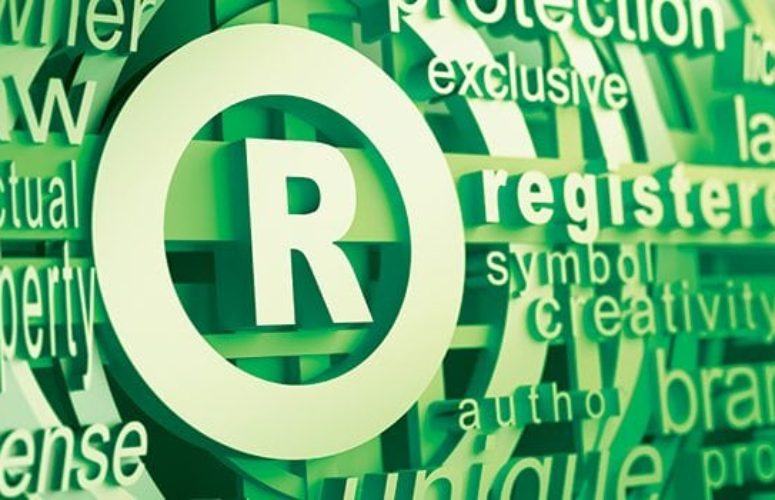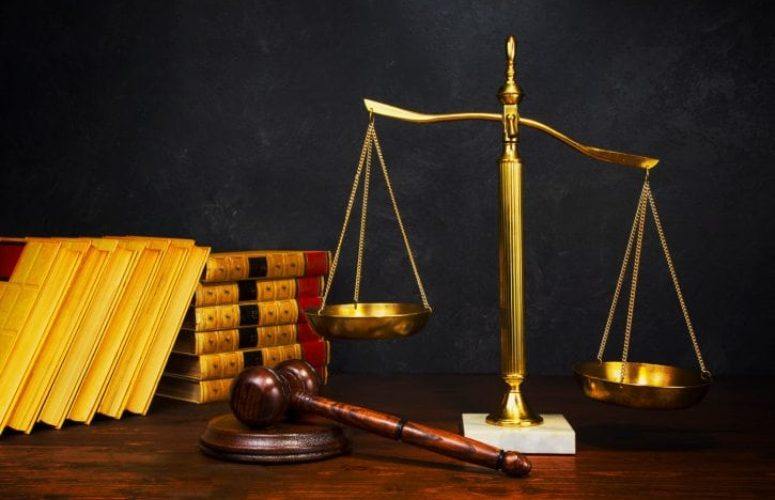
Intellectual Property Matters
The low-down on cost-conscious strategies to protect IP.
By George N. Saliba, Managing Editor On Jun 19, 2017Although the sphere of intellectual property (IP) – which includes trade secrets, patents, copyrights and trademarks – is increasingly complex in today’s globalized and digitally-connected marketplace, it can still be approached with cost-consciousness in mind. Of note, while entrepreneurs are willing to assume risks and often able to use their ingenuity to overcome an array of obstacles inherent with business ownership, this same “DNA” of theirs, when combined with frugality and/or limited funds, can sometimes lead them to shun legal counsel because they may believe that it is always expensive. In fact, preventive legal counsel is often a small cost that can save thousands (or millions) of dollars in the future. As Benjamin Franklin said, “An ounce of prevention is worth a pound of cure.”
Trademarks
For example, establishing a trademark is not necessarily difficult, but the user will want to ensure that another entity isn’t already using the proposed trademark, and, therefore, that he or she will not infringe on someone else’s rights. Determining this requires expertise. Gregg A. Paradise, partner of the firm and the co-chair of the trademark group at Lerner David Littenberg Krumholz & Mentlik LLP, says, “How expensive would it be if you had to change your name, or stop using the logo, because someone came out and said, ‘Hey, you are infringing.’? If you are about to spend $100,000 for an advertising campaign pushing your name, maybe you should spend the $1,500 to $2,000 [for an attorney] to make sure you are not wasting that investment.”
New Jersey has its own state trademark database, but it includes neither out-of-state databases nor common law rights other trademark users may have; the fact that a trademark is “accepted” by the State of New Jersey does not mean the user is “free and clear.” Complicating matters is that a Google search will not uncover registered trademarks that are essentially dormant and may be used at a later date, by another entity.
An IP attorney will have the user’s proposed mark searched for phonetic similarities, vowel substitutions and truncations, across a wide range of databases and mediums.
Keith Taboada, partner-in-charge of the Shrewsbury office of Patterson + Sheridan, adds, “Before your product launch, you want to file for an intent to use, which can get examined ahead of time, and, then, hopefully, by the time your product is ready to launch, you have already secured your trademark. One important thing is to really go for the word mark, first, because any of the design attributes that you might include in your mark that you want to have protected often change at the 11th hour. You are really better off waiting a bit to see what you are actually going to launch, if you are going to use some kind of stylized or design mark.”
Trademark Infringement
Assuming an entrepreneur collaborates with an attorney and diligently establishes a trademark, what should he or she do if – one day – a Google search reveals infringement?
When trademark infringement is considered, Paradise says, “At its core, the question is: ‘Is there a likelihood of consumer confusion?’ Sort of the laymen, non-legal way to look at is: ‘Is a customer walking down the street, being presented by this mark or this business, going to be confused into thinking that it is somehow related, associated, sponsored by – or affiliated with – the other company?’”
More detailed litmus tests essentially examine: How similar are the marks? How similar are the goods and/or services being offered by the two entities? How strong is the mark? (A famous trademark like Starbucks may be accorded a broader scope of protection.) How sophisticated are the purchasers/consumers? Has there been actual confusion in the marketplace already?
If someone is indeed infringing – and confusion is being created in the marketplace – an attorney can guide a businessperson on next steps, which might include: Having the business owner reach out to the infringer and attempt to resolve the issue; using an attorney to send a cease-and-desist letter; and taking additional legal steps, if necessary. There are some cases when emergency court relief may be necessary, such as if the infringer’s company will soon be attending the same tradeshow, and massive profits are at stake.
Notwithstanding such an emergency, Paradise says, “So, you have an infringer. Some questions always are: ‘How much does this really matter? How much do you care? How much is this hurting your bottom line?’ Those answers will be very instructive in how best to proceed. Litigation is very expensive. Trademark litigation tends not to be as expensive as patent litigation, except in extreme cases. But, it still can easily get into the hundreds of thousands of dollars – sometimes even more than that. So, you want to avoid it, if possible. That said, the vast majority of trademark infringement litigation never gets to trial.”
Paradise adds, “You have to tailor it to the situation, but a [cease-and-desist] letter is often appropriate. If you have to go into court, you are able to tell the judge, ‘First, my client – the president – picked up the phone, called the president of the other company, tried to work it out; they ignored him or said ‘no.’ Then, we wrote a letter; they ignored us, or said ‘no.’ We tried. Now, we are in court, and the judge [might say], ‘OK. You know, you tried to avoid it; you did what you did.’ It can really help with getting the litigation off on the right foot, and having the judge on your side, which is also helpful, because, again, most of these [cases] settle. Often, the judges can be instrumental in fostering settlements. If you have a smaller business – and it just doesn’t have the budget for litigation – you are certainly going to explore all of these avenues.”
Trade Secrets
The general public may incorrectly limit the realm of trade secrets to matters such as Coca-Cola’s secret formula, when, in fact, the scope might be broader: Why do people buy a product from one company rather than from another? Is one product superior? Is one less expensive?
Taboada says, “Two [companies] may make the same products, but one has slightly less overhead because it may have a different manufacturing technique, or maybe there are different raw material suppliers that the other people don’t know about. Those are all protectable [aspects] that provide it with a competitive advantage in the marketplace. … Even non-manufacturing companies like sales companies have their sales and vendors’ lists that are protectable.”
Taboada warns about former employees essentially forming mirror companies that use the first company’s proprietary methods in order to compete against it. While the details of establishing and protecting a trade secret warrant legal consultation, essentially the company must make everybody who comes in contact with the protectable information aware that it is indeed a trade secret. The owner must also take the proper steps to protect it from public disclosure.
Patents
Patents are a recurring theme in IP, especially in New Jersey, where biopharmaceutical and tech companies abound. New Jersey Business has written about the patents arena extensively, with legal changes in recent years including the United States’ migration from “first to invent” to “first inventor to file.” As most readers may already know, the US used to examine who actually invented something first, and not who filed for a patent, first. With this change, companies – depending on legal guidance – might typically file a patent the first moment something is patentable.
Other changes in recent years showcase the fact that IP rights in some foreign countries appear to be improving, which of course is good news for American companies’ foreign strategies.
Taboada offers, “On the patent side, there have been a number of foreign plaintiffs that have successfully sued to protect their patent rights in China, against Chinese entities. This shows that there is not as much home-court advantage as there used to be in the past. That is part of globalization: These countries want to promote foreign investment in their countries, so they need to demonstrate that they are going to be protective of those investments and be fair to the holders of those IP rights.
“Overall, the atmosphere is good for seeking protection overseas. It is much better than it has been in the past. Frankly, it is much cheaper to enforce overseas, when compared to the United States.”
Surprisingly, some patent owners are unaware that their US patents only protect them domestically, and that they must, in fact, file for overseas patents if they want protections in other countries; a US patent is not “automatically honored.”
Michael Friscia, partner in the intellectual property / information technology group at McCarter & English, LLP, says, “For example, the Patent Cooperation Treaty, or PCT, allows you to file an international application by filing in the United States. It essentially reserves the ability to file in foreign countries directly, for 30 months after the US filing date. Then, you can file a European application, and you get reviewed for all of the European countries, all at once.
“Next, you can register in the specific European countries where you seek protection. European laws are relatively settled, and the laws in other countries like China are less than settled. The Chinese laws seem to be going in the right direction towards preventing infringements, but the system is far from predictable at this stage.”
Growing a Company
Globalization and communications technologies have made the world a so-called “small town,” with one case including a company owner sending a cease-and-desist letter to another – and later realizing that the two of them were “connected” on the social media website LinkedIn. There might be a time and place for pound-the-ground litigation, but preventive legal counsel and associated steps can often fend off many IP matters – and a skilled attorney may be able to de-escalate an IP conflict. All of this may reduce costs and foster an environment where business owners can hopefully return to focusing on growing their companies.
Overall, Paradise concludes, “I know there’s always a fear out there: ‘I am going to talk to the lawyer, they are going to keep upselling me, I am going to spend all my money on IP and not have enough to really develop the business.’ Well, actually, a good lawyer – functioning as an advisor and counselor – will work with the company to prioritize where to spend the money.”
New Jersey Intellectual Property Law Association to Recognize 2017 Jefferson Medalist
By Josephine A. Paltin, Esq.
The New Jersey Intellectual Property Law Association (NJIPLA) is a non-profit organized to educate its members and the public about the practice and protection of IP. The IP umbrella covers patents, copyrights, trade secrets, trademarks and related trade dress. As an accredited provider of Continuing Legal Education (CLE), NJIPLA is devoted to presenting the highest quality live programs featuring nationally recognized speakers from the IP bar. NJIPLA members include attorneys in private, corporate and government practice, as well as academics, students and other practitioners.
NJIPLA bestows the Jefferson Medal upon an exceptional contributor to the field of IP law. Awarded since 1951, the NJIPLA Jefferson Medal is named after Thomas Jefferson, who was an original member of the United States Patent Board − founded in 1790 and a predecessor to today’s United States Patent and Trademark Office (USPTO). The NJIPLA Jefferson Medal is recognized nationwide as one of the highest honors in IP law.
IP law changes frequently, whether through legislative means such as the 2011 America Invents Act (AIA) and the Defense of Trade Secrets Act of 2016 (DTSA), or through judicial opinions, including landmark cases decided by the United States Supreme Court. Patents, copyrights and federally registered trademarks are generally litigated in federal, not state, courts. The longevity of any given item of IP such as an issued patent or registered trademark is not guaranteed, because the validity of IP can be challenged after grant. For example, the AIA has made it easier to invalidate issued patents at the USPTO, giving rise to new expertise in bringing and defending patent challenges before the USPTO. Further, the DTSA provides for a federal cause of action in trade secrets matters, which previously were generally litigated under state law. New legal strategies are now available and specialized expertise is required to navigate these new venues.
Recent landmark Supreme Court cases have changed the landscape for patenting business methods, software products, and certain medical diagnostics. Financial damages considerations for patent infringement also were recently decided. Meanwhile, certain trademarks that some consider offensive have been challenged and are awaiting Supreme Court decisions. The choice of federal patent venue was argued recently before the Supreme Court, just days after the lead appellant’s counsel presented the argument at the NJIPLA Patent Litigation Seminar. We are delighted to host such prestigious speakers year after year at NJIPLA CLEs.
Thus, the need for keeping up-to-date with changing IP law has never been greater. Accordingly, NJIPLA presents and co-sponsors a number of CLE programs throughout each year, including an annual Patent Litigation Seminar. Our 30th annual Pharmaceutical and Chemical Patent Practice Update took place last fall. Other recent events included a dinner meeting on Medical Devices and a half-day seminar on Legal Ethics. Next on the horizon is the Jefferson Medal Dinner on June 9th at the Hilton at Short Hills. Readers are invited to visit NJIPLA at www.njipla.org.
ABOUT THE AUTHOR: Josephine Paltin is Patent Counsel at Commvault Systems, Inc., Tinton Falls. She currently serves as president of the New Jersey Intellectual Property Law Association (www.njipla.org). She can be reached at [email protected]. The views presented here are her own and should not be attributed to Commvault Systems, Inc.
Related Articles:






